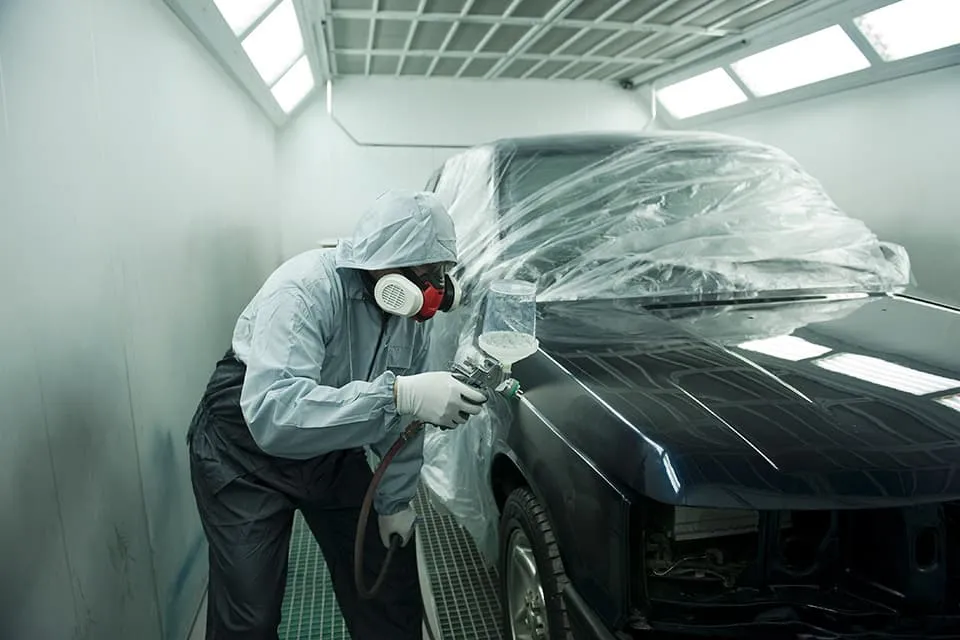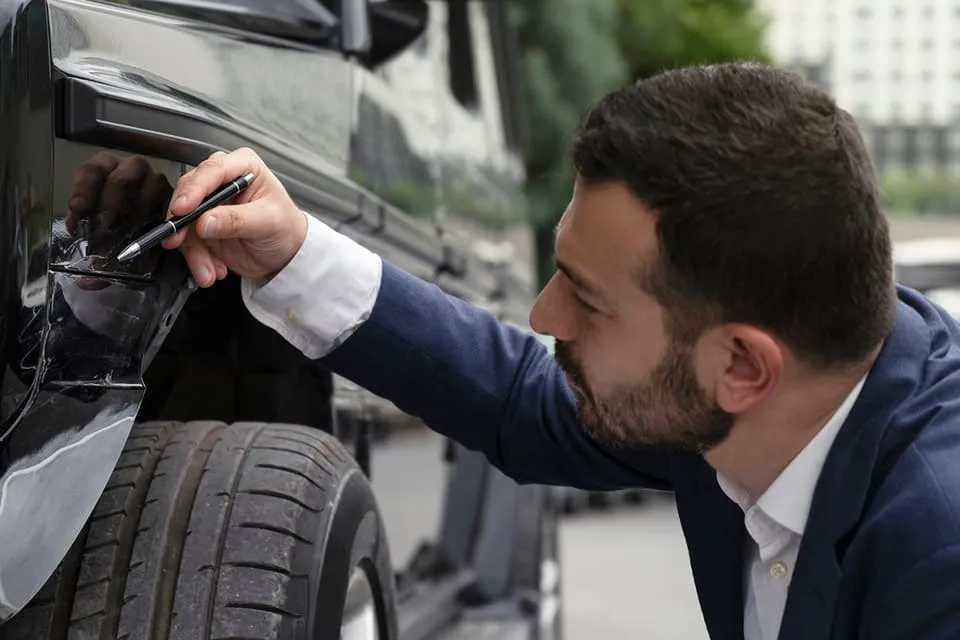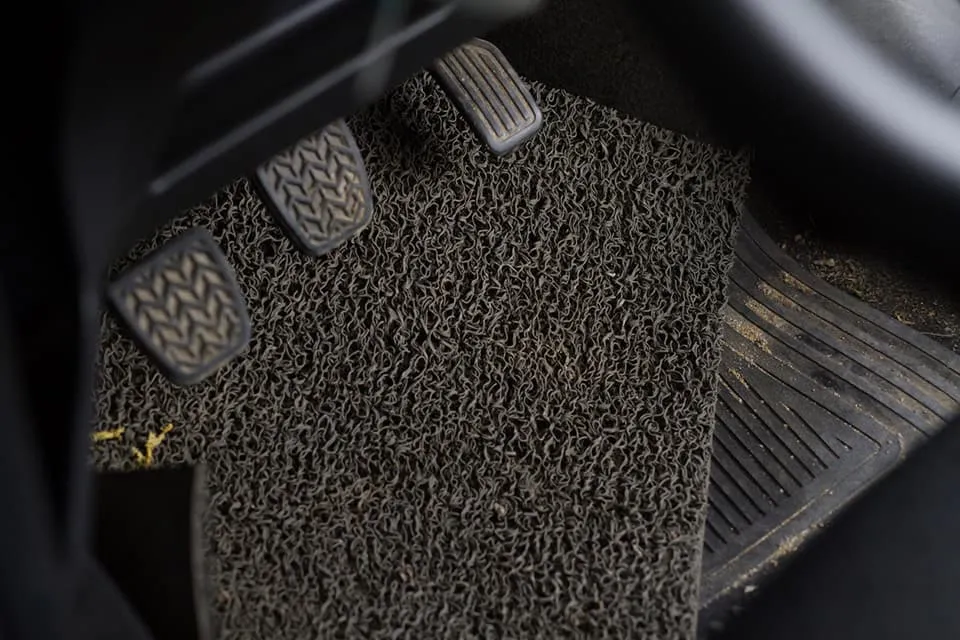What Is Title Washing?

According to IHS Automotive Research & Analysis, 1 in every 325 used cars sold in the United States experiences title washing. With each passing year, the risk of purchasing a vehicle with a washed title increases, putting you and your loved ones at risk. So what exactly is title washing fraud, and how can you avoid it?
What Is A Washed Title?
Title washing is a common automotive scam involving the repair of a heavily damaged or recently salvaged vehicle in one state, and the subsequent transfer of that vehicle to another state. By lying to the new state about the car's history, these criminals can obtain a clean title and sell the vehicle for far above its actual value. Many types of vehicles can have washed titles, including:
- Flood Damaged Cars
- Abandoned Vehicles
- Salvaged Vehicles
- Cars That Have Been Declared Totaled
- Vehicles That Have Been Tampered With (e.g. odometer rollback)
The risk in purchasing a car with a washed title doesn't only lie in being overcharged; since these vehicles were heavily damaged, the repairs that took place will never get it back to the condition it was previously. Many systems within the car can hold on to defects caused by the accident, and even a total repair will miss some small issues the vehicle now has. This poses a massive safety risk to anyone who purchases the vehicle, and can incur thousands in subsequent repairs when the patchwork fixes fall apart. If you've already bought a car with a washed title start by getting a full inspection from a trusted mechanic to understand what you're dealing with. Check for any open recalls, and gather all paperwork you received when buying the car. If the seller didn’t disclose the title issue, you may be protected under state fraud or consumer protection laws, especially if you bought it from a dealership. In that case, talk to a consumer rights attorney or your local DMV to see if you can file a complaint or even get compensation.
Four Signs of Title Washing
The best course of action you can take when purchasing a used vehicle is to look for the signs of car title washing. That way, you can identify a vehicle that has a washed title and avoid overpaying or the increased risk of injury.

Visible Signs of Damage
A vehicle being used in a car title washing fraud will likely have lingering signs of previous damage. Criminals aren't the brightest, and if the accident or natural disaster that ruined the car in the first place was severe enough, they won't be able to get the car back into perfect working condition. Ask to test drive a vehicle, and if possible, get it inspected by an automotive professional. Look for obvious signs of collision, wear, or tampering, like:
- Worn tires
- Cracked glass near the odometer, indicating odometer rollback
- Dents or scratches
- The car pulls to the left or right during a test drive
- Worn down seats
- Damaged interior or signs of flooding
Dealer is Offering The Vehicle Cheap
If the vehicle seems to be too good to be true, it usually is. If the other party in a sale is anxious to offload a car, that is usually a sign of a title washing. Trying to sell a vehicle well under its blue book value is a sign that a car's title may have been washed; the faster this person gets the vehicle out of their possession, the higher chance they can avoid being caught for their crime.
Make sure to question someone closely when they give you too good of a deal, and always be on the lookout for suspiciously cheap vehicles. Checking the blue book value is a good way to get a reference point for what a clean title car would be worth. A vehicle several hundred or thousand dollars below a standard quote is always cause for concern.
Encouragement to Not Check Car History
An unscrupulous dealer may steer you away from getting a car history report or checking too closely into the vehicle details. They will also likely dodge questions about accidents or the current vehicle condition, and do everything they can to retain their plausible deniability. No matter what the situation, you should always research a car carefully before considering a purchase.
A vehicle history report is an excellent way to get the facts about a car beforehand. These services can help you look up license plates, find VIN numbers, and get a full history of most vehicles available for purchase. Once you've done your research, you can walk through your findings with the dealer and pay the best possible price for your car.

Hints The Vehicle Is From Out of State
Again, criminals aren't the brightest. Sometimes scammers in a title washing scheme will forget to remove any signs the vehicle could be from another state. Stickers are a common giveaway; by checking the car's exterior carefully, see if you can find any stickers from out of state sports teams or businesses. While this isn't necessarily a guarantee of a car washed title, it could be an indication that you should check more closely.
There can also be physical remnants of different environments left behind on a vehicle. For example, if you are purchasing a vehicle in Washington, finding sand inside the car should definitely raise your suspicions.
Title Washing Frequently Asked Questions
What States Allow Title Washing?
Car title washing is a federal crime and considered an act of fraud. Despite this, there are a handful of states that do not have specific laws against title washing or don't generally enforce existing laws against the practice. These states include:
- California
- Texas
- Washington
- Tennessee
- Mississippi
- Illinois
- North Carolina
- New Jersey
- Virginia
- Massachusetts
- Georgia
The reason many of these state's are easier environments for title washing fraud is due to the variable definitions of total vehicle loss. Each state has its own level of damage a car must reach before it's declared a loss or given a salvage title; in some areas, the repair costs must exceed its scrap value, while in others the repair costs are compared to its value in working condition. Regardless of the situation, residents of these states should be on high alert for title washing scams.
Is Title Washing Illegal?
If caught, car title washing can and will be prosecuted as a federal crime. If the state that the scam takes place in has its own title washing laws, then federal and local law enforcement agencies will work together to investigate the crime. Depending on how large the title washing operation is, other agencies like state police may become involved.
One famous example of a large car title washing bust was Operation Title Sweep, a joint operation between the Texas Department of Public Safety, FBI, U.S. Postal service, and a group of other state and federal agencies. A large group of title washing scammers were caught, and the federal government estimated they were responsible for millions of dollars worth of damage to American consumers.
How Does Title Washing Work?
The exact process of title washing depends on the scammers, but it usually goes one of three ways:
- Altering the Title - If a forger is involved, scammers may choose to alter the title to make it appear as clean. Car titles are usually paper documents containing information about the vehicle, and changing the title can be relatively easy. This is still a less common method; If the forger isn't experienced, a dealer or law enforcement agent can spot the change easily.
- New Title Application - Some criminals will just apply for a new title while providing an illegitimate car history. Depending on the state, there may be no requirements to declare damage during a new title application. Without accurate information, car title issuers will likely give the vehicle a clean title that will not reflect the true accident history of the vehicle.
- Moving the Vehicle To A New State - The most common method of car title washing is to move the car to a different state, usually one with looser regulations. If a car experiences an accident in a state with strict car title washing laws, scammers will choose one of the states listed under the "What States Allow Car Title Washing?" above and transfer the vehicle. Once there, they will lie about the vehicle history to obtain a clean title, and sell the car at a price higher than its actual value.
What Happens If I'm The Victim Of Title Washing?
Even with all the preparation and research in the world, we all fall prey to scams at one time or another. If you are the victim of a title washing fraud, the first step you should take is to report it to a law enforcement agency. This could be done by going to your local police station, or contacting your state's attorney general. You can also make a report to the department of consumer affairs. These agencies will take the information you provide and then attempt to apprehend the criminals. If successful, you may get compensated for your financial loss.
How To Avoid Title-Washing Scams
The best way to avoid any vehicle related scams is by doing extensive research before your purchase. Proper due diligence can prevent you from falling victim to title washing by helping you match the provided details with the vehicle history report. A high-quality vehicle history search tool can provide you with all the information you could want; all you need is a license plate number or VIN. With these reports, you can make sure you are getting the best possible value, and securing a vehicle that will keep you safe on the road.
FREE Vehicle Search
- Accidents
- Problem Checks
- Title Records
- Recalls
- Values
- Specs
-
InfoPay, Inc. (dba GoodCar) is an Approved NMVTIS Data Provider
-
-






























